PHS Students Explore Various Options After Graduation
How do you come up with a plan for what lies ahead?
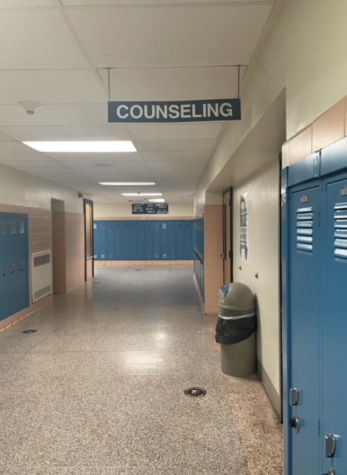
The plastic chair in your counselor’s office makes you readjust your position uncomfortably as you sit in on your meeting. “You’re graduating next year, you must be really excited! Have you already sent in your applications to your top-picked schools?”
They type away on their keyboard while the bright pixelated screen projects your transcript. In the replacement of a reply, you sit there and chew on your counselor’s words. Your sweater starts to feel a little too warm and your hands tense up, and suddenly the same “Plan for Your Life Ahead” poster on the adjacent wall becomes a little too aggravating.
This is a general meeting the majority of high school students have with their counselors with different variations throughout the years. It all boils down to planning your life after you graduate; everything you do in high school is supposed to prepare you for the future. But, what if you don’t know what you want to do in the future or even worse you have a plan and it fails? Well first off, you should not wait until your junior year to come up with that epiphany, because it is your most crucial year in terms of planning for college; that is if you are going into college.
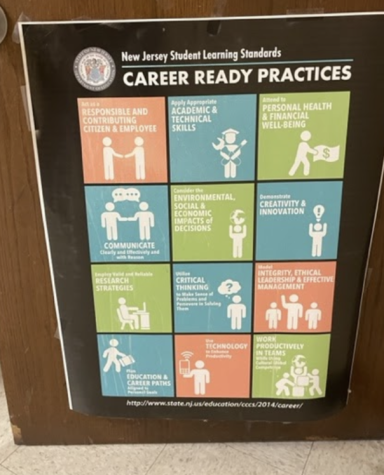
The American school education system is centered around the notion of being prepared for the future, more specifically setting students up to succeed in college. Society as a whole normalizes the concept of attending a 4-year college right after high school, which is by no means a bad thing.
Although they have their faults, what with their massive life-long debts in student loans, 4-year colleges do have several benefits and most people regard them as the safest route to a stable life. Society emphasizes the importance of college and puts it on the highest platform possible, and obviously they have the purest intentions at heart, but the spotlight on colleges neglects the importance of other life paths too. Many high school students are reasonably unsure what they want to do with their lives and some do not see solely college in their future. Instead, some students decide to explore other paths that focus on their interests. However, it is more difficult for these students to find resources to help them plan for their separate life paths because the outlets accessible to them feed everyone the narrative of college first, everything else after.
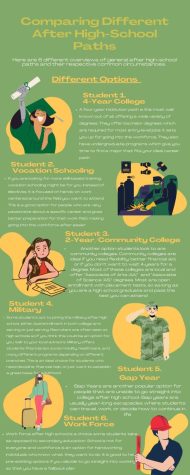
Piscataway High School is fortunate enough to carry so many different resources that help students prepare for their lives outside of high school and not necessarily just in college. So many students have their own stories and different paths they wish to pursue, each of them planning for a future unique to them.
Norelle Anderson, a senior at Piscataway High School, was nowhere near sure what she wanted to do with her future.
“My original plan was to be an international student…my plan was to go to Rutgers, do the international program, get my credits for 2 semesters, and then go to Japan.”
This type of plan seems like an ideal situation for most students unsure about what exactly they want to do, traveling and learning, but then at some point real life kicks in and ruins plans.
“[Over quarantine] they closed the borders to Japan because of covid so now I have to figure out my alternative and since it was cutting so close to graduation I just said ‘Y’know what, I’m just gonna work, then go to college.’”
The original plan for Norelle prioritized her dream studying abroad in Japan, but as it turns out life did not have it in the cards for her. Even though this turn of events was shocking however, she could not give up on her future and switched over to “plan B” with the help of her resources inside of the high school.
“Ms. Martelli, she helped me get myself together after I realized that I couldn’t go to college there and started panicking. She told me to look into colleges and then we figured out I didn’t really want to do that so she helped me with a job and filling out my resume.”
Norelle quickly adapted to the unforeseen complication in her life and directed her sail on a new path in hopes to reach the same destination. She is now working in hopes to save up for an apartment and looks to attend college later on so she can save up her money now. Even though experiences like these aren’t portrayed in the typical “life planning” meetings, they are real-world experiences that happen commonly to people. Being able to take what life threw at her, work with the resources around her, and being determined on her goal helped Norelle reach a comfortable place in regards to planning for her future.
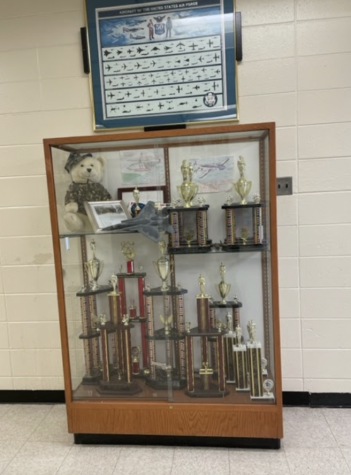
To emphasize on resources at the school, Ms. Chilakos, a college and career counselor at the high school, talked to me about the role.
“[This] fall was spent with a lot of college application-type items, financial-type stuff. We also host college visits and in the fall we had about 90 representatives from different colleges come and basically they met with students who signed up and they told them all about their colleges.”
Although her title does center around college, that is not necessarily her only concern for students. When asked about approaching undecided students with the concept of college she argued that, “it depends on what they say, there’s a lot that goes into that. If they say that they want to go into engineering or nursing or a field that needs a 4-year degree then that would be the appropriate response, but for the kids that really don’t know what they want to do it is not necessarily ‘you have to pick a college’…I think that the alternative piece like trade schools, workforce, all that, has been something nebulous [hazy] in the past, so it was definitely a goal for us to work on this year.”
The high school’s counseling is a great resource for students to use in all aspects, especially when planning for the future. The counselors are professionals who are apt in the field of planning and can help you determine the best base for you to begin your journey.
In contrast, another senior at Piscataway High School, Matthew Benway, has a totally different plan for after graduation; he is enlisting in the Marine Corps while simultaneously attending college online. By no means was he always sure about what he wanted to do though.
“I didn’t know what I wanted to do in freshman and the beginning of sophomore year, in fact I was thinking about going into professional wrestling…but I had to think a bit on the more realistic side.”
In fact, it wasn’t until he saw a video about the Corps and did his following research about the army that he decided on his path. Teenagers are just newly experiencing the world and cannot yet be expected to map out their whole future when they are still finding themselves.
As Benway puts it, “I find it an absence [annoying] concept that a 16-17 year old is supposed to have their life career figured out.”
It is an unreasonable expectation for vulnerable kids to burden regarding the planning of their future, one wrong decision and they’ve set themselves up for failure. At least, that is how some people view serious life decisions students make. When informing friends and family about his decision the majority of his peers disagreed, fearing the decision was too rash and too dangerous.
“I don’t think a lot of people know how the military works and how it can strongly benefit someone … you can use it as a stepping stone because you don’t really have a lot of bills to pay so you can save your money, your given a place to live, food, clothes, you can go to college for free, there’s a lot of benefits like health insurance, and there’s a lot you can use in your first 4 years that can strongly benefit you for the rest of your life.”
The article “Joining the Military After High School Benefits and Risks” outlines that “all military service members are eligible for tuition assistance while on active duty or in the Reserves…it can cover up to $4,500 in tuition and fees each year.” As of a 2021 statistic, attending an out-of-state, public college costs about $22,698 alone in tuition, not including any outside purchases. After weighing all of his options, Matthew has selected a life path he is passionate about and one that he has decided is worth the risks for all the benefits it brings.
Both of these students have very uniquely different experiences and paths for the future, yet the both share strikingly similar commonalities. Both of them had to deal with unforeseen outside factors which altered their original golden plans, Norelle wanted to study in Japan while Matthew wanted to be a professional wrestler. However when life got real for them they were able to combat their challenges and work with what they had. They used their surrounding resources to make a plan for themselves for the future and were still able to prioritize some part of their dreams.
Even though it is always told to us that education is important, at the end of the day it is not everything. Yes, it is crucial, but it should not get in the way of individual happiness and looking to find a path for the future that is right for you. It is okay if you are unsure what to do with your life now, to be honest no one is 100% sure.
There are so many options and resources available, from school college and career counseling to simply using Google. Taking a year abroad, trade school, community college, and workforce are all alternatives to the standard universities and can help when trying to adapt to unique situations. There are always going to be uncertainties and obstacles around every corner, but if you are able to use your resources around you and deal with them as they come, the right path will reveal itself eventually.
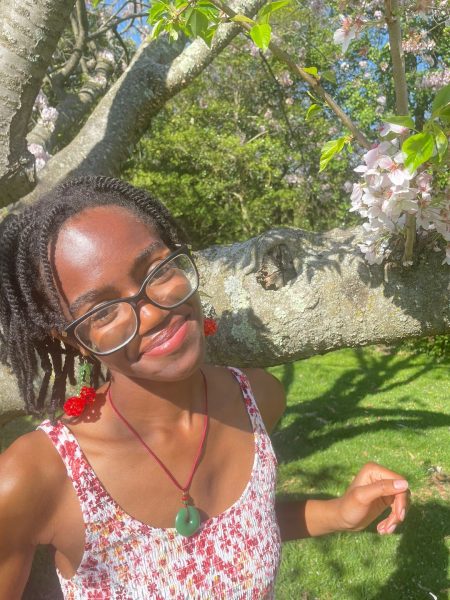
Hi I’m Nyasa and one of the editors-in-chief for The Chieftain! I have been a part of the club/class since freshman year and am so glad to continue my...


